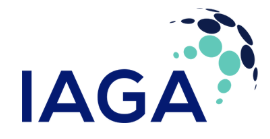ICE Barcelona 2026 – John Hagan to speak at Sport Leaders Conference
Between 19-21 January 2026, ICE Barcelona will again be providing attendees with opportunities to drive revenue through innovative solutions, technology, valuable insights, and unrivalled networking opportunities.
Harris Hagan co-founder and Partner, John Hagan will speak at the Sport Leaders Conference on Protecting Growth, Safety and Integrity in Global Sports Markets. The session will not only look at the roles played by data, technology, regulators and international sports leagues in protecting sports players and bettors, but will also touch on the regional and national market specificities that international operators need to attune with when entering emerging markets.
John’s fellow panellists will include:
- Gossy Ukanwoke, Managing Director – KingMakers (BetKing)
- Graciela Garay, Director of Ethics, Compliance & Integrity – CONMEBOL
- Tom Santos, Chief Commercial Officer – Bet da Sorte
Please see the below details for your calendar:
Date: Tuesday 20 January 2026
Time: 12:15pm – 13:00pm CET
Location: CC4.1, Fira Barcelona Gran Via
Partners, Bahar Alaeddini and David Whyte will also be attending ICE Barcelona 2026. Please do not hesitate to get in touch if you would like to arrange a meeting to discuss the UK market and how Harris Hagan may support you.



